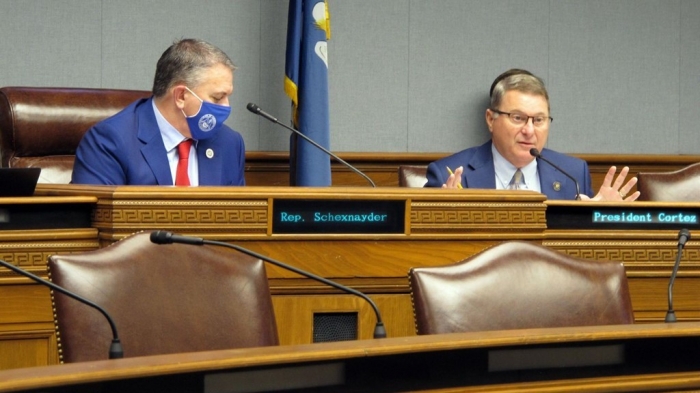T
he Louisiana Senate took another step Wednesday toward legalizing sports betting in most of the state.
Senators voted 31-6 on Senate Bill 247 that lays out how the betting will take place and how it will be regulated.
Bills to set up a framework for legal sports wagering have been moving with relative ease during the legislative session after voter approval in 55 of Louisiana’s 64 parishes last fall. It has not been decided yet how lawmakers will spend the resulting revenue, reports West Central’s Best.
Lake Charles Republican Sen. Ronnie Johns, in reference to other states who moved more quickly to legalize sports betting after the U.S. Supreme Court opened the door in 2018, said: “Once again, Louisiana finds itself following the lead of other states around us. He added: “The people have spoken on this.”
Johns and Sen. Rick Ward, R-Port Allen, said 65% of Louisiana voters supported the referendum to legalize sports betting. Ward said a majority of voters in every Senate district voted in favor.
Sen. Cleo Fields, D-Baton Rouge, asked whether some of the revenue will be dedicated to early childhood education, echoing a request many other legislators have made. Ward said revenue will be handled in Senate Bill 142, which, in its current form, would direct the money to the state general fund, however, he said he expected that would change.
Senate Bill 247 by Senate President Page Cortez, a Lafayette Republican, calls for the Louisiana Gaming Control Board to issue 20 licenses to provide sports betting, with the state’s 16 casinos and four racetracks getting the first crack at a license. Video poker providers and fantasy sports operators would be next in line if any of the casino or track owners don’t apply by Jan. 1 or within 30 days of applications becoming available, whichever is later. The casinos also would have to agree to build out a separate area to handle sports betting. Each license would be allowed to license two platforms to handle betting over cell phones. That means 40 licenses for mobile phone wagering apps.
Bettors would have to be at least 21 years old and physically located in one of the 55 parishes to bet legally. Mobile gaming would be allowed as well but providers would have to use geofencing technology to ensure bets are not accepted from parishes where it isn’t legal.
Athletes, coaches, and officials would not be able to wager legally on their own games. Wagers are not supposed to be accepted on a single act in a team event controlled solely by a single player.
House Bill 697, pending final passage in the Senate, calls for a 10% tax on the net proceeds of an operator for on-premise sports wagering and an 18% tax on net proceeds from mobile betting. The bill also calls for the Louisiana Lottery to oversee sports betting through kiosks placed in bars and restaurants, which is meant to allow retail establishments to benefit.



